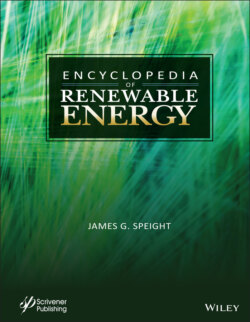Читать книгу Encyclopedia of Renewable Energy - James Speight G., James G. Speight - Страница 67
Alcohols – Corrosivity
ОглавлениеDry methanol is very corrosive to some aluminum alloys, but additional water at 1% almost completely inhibits corrosion. It must be noted that methanol with additional water at more than 2% becomes corrosive again. The same happens with less than 1% water. Nitride and neoprene rubbers, generally satisfactory as elastomers in contact with methanol and polyacetal plastics, are very resistant. Silicon rubber as well as vinyl can be used for gasket material. Ethanol always contains acetic acid and is particularly corrosive to aluminum alloys. Also, certain alloys containing lead are attacked with a general result of the lead being leached out, leaving a porous surface. The same phenomenon exists with alloys of zinc, such as ZAMAC (zinc plus aluminum), and the zinc is leached out as a white zinc oxide, which clogs the small orifices and jets.
Carburetors are normally made of ZAMAC alloy. Experience has shown that if the carburetor is protected with a coat of nickel, the corrosion problem is overcome. The process recommended is electrolysis nickel plating. In this process, the carburetor parts are immersed in a bath of hot nickel, which, due to the low viscosity, covers evenly all the surfaces without clogging the orifices. The floats on the carburetor float-bowl are generally made of porous plastics which are attacked by the ethanol, and the end result is swelling and cracking. It is found that nylon floats arc more durable. A float can be made with thin sheet of brass (0.005 in) or 0.125 mm thickness, molded and welded with pure tin (Sn).
Alloys of tin and lead (Sn+ Pb) shall be avoided as welding material. All bronze parts shall be brass or stainless steel. Steel fuel lines shall be replaced by nylon tube (Nylon 11). Fuel filters used for gasoline are not recommended for the many alcohols. The internal element collapses after the glue that bonds it together is softened by the alcohol. Special filters are necessary. Also, due to the higher flows, filters have to be bigger. The filter body must be made of nylon or Teflon.
See also: Alcohols, Butanol, Ethanol, Methanol, Propanol.
